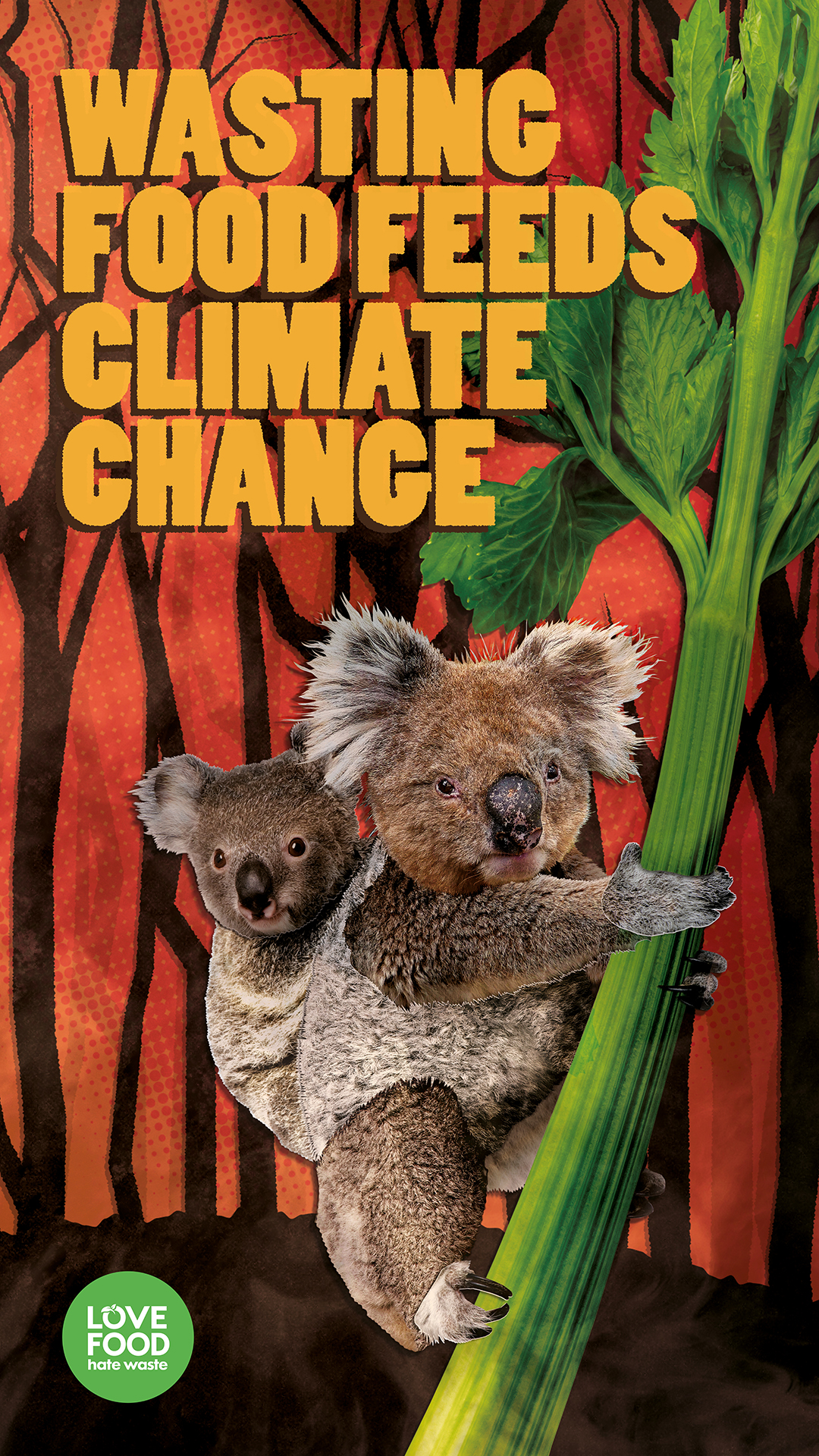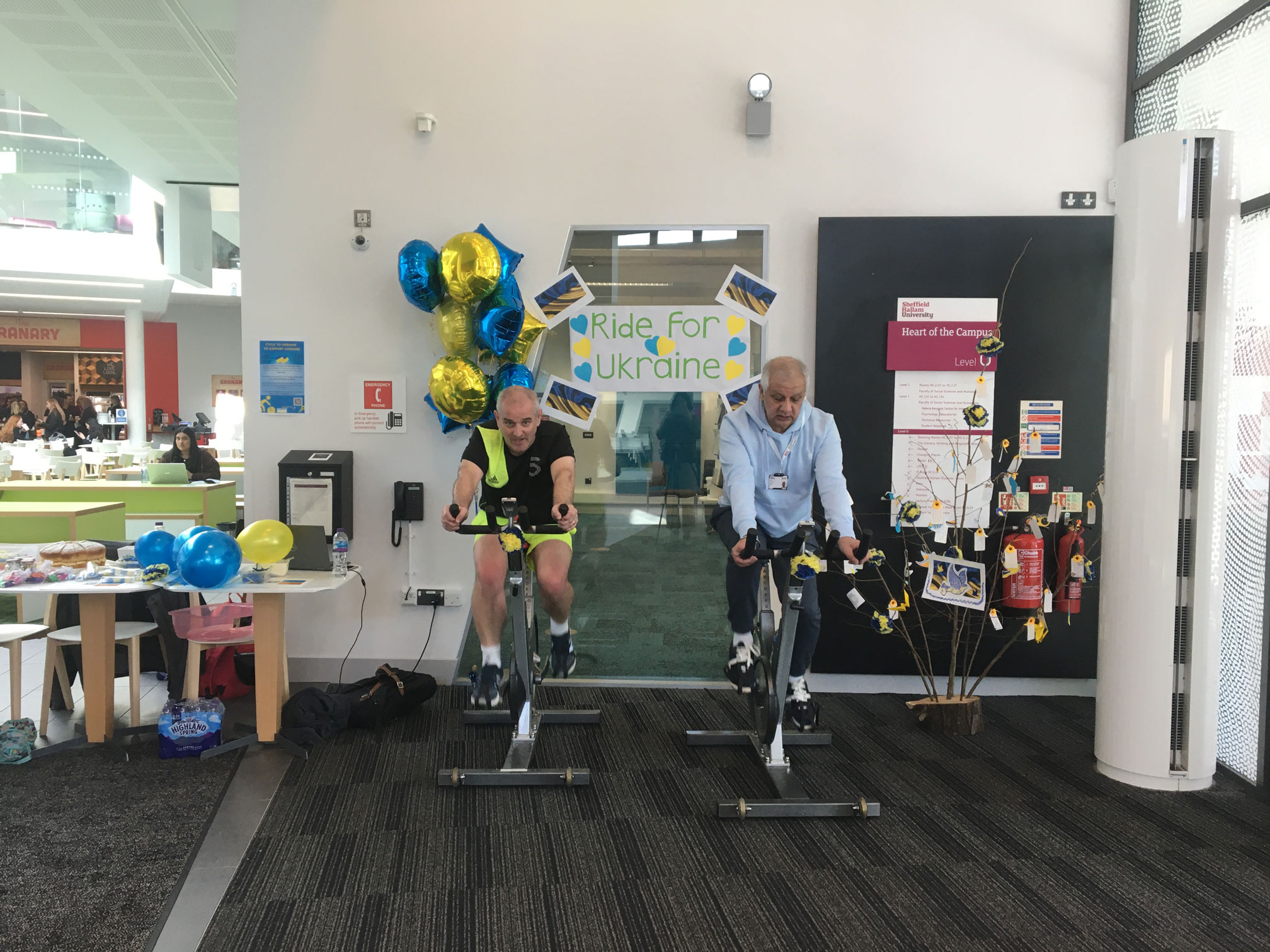
Meet the gender pay gap bot exposing companies across South Yorkshire
For this International Women's Day an anonymous bot account on Twitter has stunned users with its exposure of some very big gender pay gaps. 8 March 2022 marked this year's International Women's Day and many companies took this day as an opportunity to thank their female workers and colleagues for the amazing work they do. One user on Twitter, @genderpaygapbot, decided to expose every company that used the #IWD tag and replied exposing each gender pay gap. The definition of unequal pay is paying men and women differently for the same or similar job role. This is illegal in the UK and all companies must ensure equal pay within the same job roles. The definition of gender pay gap is the difference in median hourly pay between men and women. If, for example, a woman's pay is less than a man's it usually means more men, on average, have senior roles in the company. Some of the companies exposed by the account were based in South Yorkshire, and a horrifying amount paid their female workers less than their male workers. Sumo Digital was one company victim of this cyber bot who exposed the organisation for paying women 23.4% less per hour than men.
A spokesperson for Sumo Digital said: "Sumo Digital can confirm than men and women receive equal pay for the same or similar work, we have a culture of honesty at Sumo and acknowledge we have to improve our gender pay gap. We are committed to working towards this goal in the future and will share more in our upcoming report." Housing 21 posted a Twitter press release in response to being targeted by the bot for female workers earning 31% lower than the average male in the company.In this organisation, women's median hourly pay is 23.4% lower than men's. https://t.co/fgodoIu9YO
— Gender Pay Gap Bot (@PayGapApp) March 10, 2022
In the Twitter thread they said: "The gap is driven mainly by the structure of our workforce, where women occupy the vast majority of service delivery roles. However, we know this is something we must keep working to improve and our new Respect and Inclusion strategy has exciting plans to explore new pathways to progression for women in the organisation."In this organisation, women's median hourly pay is 31% lower than men's. https://t.co/Fwebd06kTP
— Gender Pay Gap Bot (@PayGapApp) March 9, 2022
Excuses about childcare and child rearing are often the top excuse as to why companies suggest women are mainly in the lower paying roles within their companies yet the average male graduate is paid 5% more per year than the average female graduate. This is despite the fact that women are more likely to get a first class degree or a 2:1 than men. A silver lining in the appalling pay statistics: Barnsley Council only pay women 0.8% less than male workers, this is a huge win for pay gap equality.In this organisation, women's median hourly pay is 41% lower than men's. https://t.co/3HRxWBQf5U
— Gender Pay Gap Bot (@PayGapApp) March 11, 2022
Educational establishments are not in the clear either with The University of Sheffield, Sheffield Hallam University and Astrea Academy Trust with men being paid more on average than women.In this organisation, women's median hourly pay is 0.8% lower than men's. https://t.co/eo24CZvrgA
— Gender Pay Gap Bot (@PayGapApp) March 8, 2022
The University of Sheffield were exposed by the bot for paying women a median of 8.4% less per hour than men and told Sheffield Wire the mean figure is actually 15.8% less. They also said action is being taken to improve the recruitment processes and career progression opportunities for women. Astrea Academy Trust is an all-through school for children aged 2-18 years old and pays women a median average hourly pay of 44.1% lower than men. A spokesperson for Astrea Academy Trust said: "At every level women are part of our workforce, including at board level, which has a majority or women and is chaired by a woman. All our staff are paid the same for the same role, but we need to do more to attract women into more senior secondary leadership and operations roles." Chrissy Meleady MBE, CEO of equalities and human rights UK said: "Women should be compensated fairly for the work they do. It is shameful and outrageous that now, in 2022, here in Sheffield and South Yorkshire we still have employers who are paying women less per hour than what they pay men." Chrissy Meleady went onto tell Sheffield Wire that in 2019 the average difference in pay was 16% whereas now in 2022 it has grown to 37%. This is predicted to be from the increase in more women working part-time. At Sheffield Wednesday the gender pay gap bot exposed the company who pay women 41% lower than men. After contacting the Sheffield Wednesday directly, they refused to comment on the matter.In this organisation, women's median hourly pay is 13.7% lower than men's. https://t.co/rL0LxoGe7a
— Gender Pay Gap Bot (@PayGapApp) March 8, 2022

Could these robots be the future of Sheffield Children’s Hospital?
Meet MiRo and Pepper, two androids that have been combatting stress and anxiety in young patients at the hospital. The project aimed to keep children from the ages of five to 12 calm in-between waiting for treatment. It was the brainchild of Brenda Little, 29, a PhD student at The University of Sheffield, who said the project was close to her heart. She said: “The idea of coming to hospitals is daunting enough as an adult, let alone a kid. It was important for me to find a way to ease this for them. The project held a soft spot in my heart.” The robots used for the project had different functions. MiRo had pet-like features and wagged its tail whereas Pepper read the children stories, danced and sang. The project ended later last month, but the overall feedback of the robots in children and parents has been extremely positive. “A lot of them saw Pepper as a buddy and there was generally positive feedback”, Brenda said. “One parent said his child was always nervous when he came into the hospital and used to shake his legs. Since the robots were introduced, his leg stopped shaking. Another child took complete ownership of MiRo and would pretend that she was its owner. Her mother said she would love to have a pet but could not due to being in hospital constantly. Several kids were also happy to have MiRo on the bed with them when they were getting blood tests.”

Brenda and a patient with MiRo the robot. Source: Sheffield Children's hospital

‘Go With the Flow’: People are exercising to shed light on period poverty in South Yorkshire
A Sheffield charity is encouraging people to get active to raise awareness of period poverty in South Yorkshire. Menstruation Matters launched ‘Go With the Flow’ this morning, a month-long campaign which sets biking, running and walking challenges for participants to complete across Sheffield and the Peak District. Those involved are asked to wear red while exercising and share photos online to spread the message. Campaign trustee, Emily Milne, said: “A lot of people don’t know what period poverty is. At Menstruation Matters, we believe having access to period products is a human right, not something you should have to purchase. “This is a good excuse to get out there and exercise while raising awareness of and money for a good cause.” Milne also hopes the campaign will tackle the stigma around menstruation, something which she believes still exists. A new route will become available to runners and cyclists every Monday for the next four weeks and prizes will be available for those who complete the fastest times. Money raised throughout the campaign will help the charity to continue distributing menstrual products to women’s shelters, refuge centres, food banks and schools in the area. Aimee Brownlow, 23, is among those joining in. She said: “It is lovely getting involved with a local Sheffield charity and raising money for such an important cause. “Any excuse to get out to the Peak District is a bonus. I do a bit of running and cycling but this campaign is inspiring me to do more.” For more information, see here.

Learning disabilities charity raises over £10,000 during 70th anniversary fundraiser
A Sheffield charity supporting children and young people with learning disabilities has raised over £10,000 for its 70th anniversary fundraiser.
Sheffield Mencap is a small charity set up by parents of people with learning disabilities in 1951. To commemorate 70 years of the charity's work, there has been a year-long celebration that includes various fundraising events. This ends next month.
The charity supports 500 people across Sheffield, both individuals living with learning disabilities and their parents and carers.
Dave Swindlehurst, senior manager of Sheffield Mencap said: "We’re all about helping and supporting children and young people with disabilities to achievethe very best they can, to have a very rich life and to be seen as valued as much as possible in wider society". Mencap provides a range of services from education programmes during the day, social clubs in the evening, and sports clubs. They have also done a lot of work encouraging uptake of covid-19 vaccinations.
The main event of the anniversary fundraiser was the 'Sponsor me for 70' in which trustees, staff and Mencap members did various sponsored actives to raise funds.
As well as this, Mencap is sharing 70 stories from the individuals they support. The 70 stories were collated into a final ten to form a published book now on sale.
The £10,000 raised will allow the charity to refurbish their sensory room which provides a relaxing environment for people with the most severe disabilities, away from the busy environment of the other services Mencap provides.
Mr Swindlehurst said: "There's an awful lot of emphasis on encouraging and developing people and supporting them through difficult times, but also celebrating the wonderful things we can achieve with people with a learning disability every week in the city."
He continued: "As a small local charity, we’re always keen to bang the drum for what we do and celebrate the wonderful things that we achieve. At times been able to change peoples perceptions, get on people's radar a bit more and be seen for what we are, a very valuable local charity which needs support."
He said that the Christmas fundraiser was one of the highlights of the 70 year anniversary fundraiser, with people coming together for the first time since the end of lockdowns.
Mr Swindlehurst recalled the spirit and sense of community during the 70 year anniversary: "Oh its was brilliant!", he said.
Mencap provides a range of services from education programmes during the day, social clubs in the evening, and sports clubs. They have also done a lot of work encouraging uptake of covid-19 vaccinations.
The main event of the anniversary fundraiser was the 'Sponsor me for 70' in which trustees, staff and Mencap members did various sponsored actives to raise funds.
As well as this, Mencap is sharing 70 stories from the individuals they support. The 70 stories were collated into a final ten to form a published book now on sale.
The £10,000 raised will allow the charity to refurbish their sensory room which provides a relaxing environment for people with the most severe disabilities, away from the busy environment of the other services Mencap provides.
Mr Swindlehurst said: "There's an awful lot of emphasis on encouraging and developing people and supporting them through difficult times, but also celebrating the wonderful things we can achieve with people with a learning disability every week in the city."
He continued: "As a small local charity, we’re always keen to bang the drum for what we do and celebrate the wonderful things that we achieve. At times been able to change peoples perceptions, get on people's radar a bit more and be seen for what we are, a very valuable local charity which needs support."
He said that the Christmas fundraiser was one of the highlights of the 70 year anniversary fundraiser, with people coming together for the first time since the end of lockdowns.
Mr Swindlehurst recalled the spirit and sense of community during the 70 year anniversary: "Oh its was brilliant!", he said.

Sheffield United manager voices injury concerns over practice facilities
Paul Heckingbottom became the latest manager to voice his displeasure at Sheffield United’s training facilities as their injury crisis deepens heading into their final charge for a play-off place. The manager's comments came after his side were thrashed 4-1 by 10th placed Coventry at the CBS Arena on Saturday. The Blades were without Rhian Brewster, Jayden Bogle, and David McGoldrick who have long term injuries, and George Baldock, Ben Davies and Jonathan Fleck who have recently sustained injuries. Heckingbottom said: “The big one for me is our training pitch has been terrible this year. We came back after Fulham and we had two days of rain and we’ve not been on it some days. It’s just been a bog. We have to address that in the summer. It’s something as a club we certainly need to get right.” “That’s probably what I’m losing sleep over more than anything else. We need players back, we want the players back. You look at our bench today and it’s full of youngsters but when you go on it’s a big step up and we want our players back, definitely.” Previous manager Slavisa Jokanovic also voiced his concerns about the standard of training facilities at Shirecliffe, Sheffield United’s training ground, before he was replaced by Heckingbottom in November 2021. Chris Wilder who made way for Jokanovic last May also bemoaned the state of the training ground after the club committed to update their facilities in July 2020. It was reported in March 2021 that no work had started on the facility. The club is owned by Prince Abdullah bin Musaid Al Saud of Saudi Arabia was reported to have lost more than £23 million during the Covid-19 pandemic. Plans for the training ground include purpose built performance gym including heat/altitude training chambers and brand new elite bespoke changing facilities for first team players, including heat therapy and relaxation areas. For Heckingbottom, the plan is to focus on gaining promotion to the Premier League next season: “We know what the problem is and we’ve got to put that right but we can’t at this moment in time it has to be the summer.” The Blades will play 12th placed Blackpool on Wednesday evening.

Knit Off to Kick Off: Rotherham crocheting 5,000 flowers to celebrate Women’s EURO 2022 matches
A campaign has been launched to dress-up Rotherham this summer, as the town prepares to host matches for the Women's EURO 2022 tournament. Rachel Stothard, 42, is in charge of overseeing fan experience across the matches, and is working on Knit Off to Kick Off alongside local crochet groups.

Rachel Stothard, 42, will be overseeing fan experience across the tournament

One of the designs to be crocheted by volunteers

The matches to be hosted in Rotherham.

‘Cyberflashing’ now punishable by two years jail time under new law
by Miriam Kuepper People sending unsolicited pictures of their private parts will now face up to two years in prison under a new law in the upcoming online safety bill. Cyberflashing, the act of sending sexually explicit pictures to others, will be a criminal offence under the new online safety bill introduced this week.

Sending unsolicited photos of your genitals is now a crime.

“Maybe I was naïve, but I didn’t think anything of it.”

Long-awaited artisan bakery opens in Hillsborough
A derelict building in Hillsborough Park has been transformed into an artisan bakery thanks to a million pound cash injection. The Old Coach House in Hillsborough Park welcomed the public to its new Depot Bakery this morning, following renovation by Age UK Sheffield. The building, and nearby Bradbury Makers’ Shed, have been restored by Age UK Sheffield in a £1million project, partially funded through a £581,000 grant from the National Lottery Heritage Fund. The restoration of the building has taken almost five years, and Depot Bakery was chosen to run the new café in the park. Steve Chu, Chief Executive, Age UK Sheffield, said: "In terms of Age UK Sheffield and older people, the money that we get from Depot will enable us to deliver some really great, exciting, creative activities for older people. "I think in terms of the café itself, it'll be a really great resource for the local community and also for the park, and hopefully be something to add to the area."

Janet Potts, 85, the first customer of Depot Bakery

Staff working at Depot Bakery, Hillsborough Park
 Councillor Alison Teal, Executive Member for Wellbeing, Parks and Leisure at Sheffield City Council, said: “It’s wonderful to see the doors of the Coach House now open to local people and visitors, and that its first customer is someone who has given so much to the park.
"We’re extremely happy to have Depot Bakery on site and I know they will be a very popular addition to the Hillsborough community."
The bakery in Hillsborough will be takeaway only for the first week, with the full dine-in restaurant opening on Monday 21st March.
https://youtu.be/ACloXNutjg4
Councillor Alison Teal, Executive Member for Wellbeing, Parks and Leisure at Sheffield City Council, said: “It’s wonderful to see the doors of the Coach House now open to local people and visitors, and that its first customer is someone who has given so much to the park.
"We’re extremely happy to have Depot Bakery on site and I know they will be a very popular addition to the Hillsborough community."
The bakery in Hillsborough will be takeaway only for the first week, with the full dine-in restaurant opening on Monday 21st March.
https://youtu.be/ACloXNutjg4 
Sheffield Food Waste: Council and charity join forces to set out strategy for collection service in the city
A new strategy for food waste collection service in Sheffield has been laid out by councillors and charity workers following the second national Food Waste Action Week. Sheffield City Council and Recycle4Sheffield have partnered up to join the campaign of reducing food waste, announcing plans for a government-led food collection service, The Food Waste Action Week is led by Love Food Hate Waste. A member of the organisation, Sarah Clayton, said: “If global food waste were a country, it would be the third largest emitter of greenhouse gases after China and the US.”
Sources: BBC and UN Within the UK alone, the nation wastes 4.5 million tonnes of edible waste, which is enough to fill 90 Albert Halls. Sheffield Council have acted by announcing plans for a government-led food waste collection service, commencing in 2023. Councillor for Crookes and Crosspool, Tim Huggan, has led calls for a ‘trial’ Food Waste Service.
Councillor Tim Huggan

Police urge members of the public to be ‘extra vigilant’ following reports of women being followed in Sheffield city centre
Several reports of women being followed while walking on their own in Sheffield city centre is being investigated by South Yorkshire Police. These incidents occurred at various times of the day and in various locations, such as Matilda Street and Ecclesall Road. Chelsea Cheetham, 22, a Sheffield student, was followed home along Matilda Street from the Moor Market, by a group of men supposedly selling gas and electric. "Walking past the Moor Market, they asked me who supplied my gas and electric. I didn't think anything of it until I was near the car park on Matilda Street and heard them shout the same thing again. I looked back and saw the group of men following me. "Even though it was the daytime, I was still really shaken up and rushed home. As soon as I got into my apartment I sent a voice note to my friends and they could tell I was scared. I was shaking. They told me to report this incident but I didn't feel like it was significant enough to do it, now I wish I had." Enquiries are ongoing to establish the circumstances surrounding these incidents, and an appeal by South Yorkshire Police has been launched, calling for anyone who may have seen something suspicious, or have experienced something similar, to get in touch. Sergeant Kieran Frain, from Sheffield Central Neighbourhood Policing Team, said: “Whilst these types of incidents are rare, we are asking members of the public to be extra vigilant when out and about in the city centre, and if you notice anybody acting suspiciously, or if you think you may have been followed recently, please do report it to us – however minor you may think the incident is.” “Understanding where and when these incidents are happening is really important in helping us to build up a picture of who may be responsible.” Anyone with information which may support police enquiries should contact the South Yorkshire Police via their online portal, or by calling 101. In the case of an emergency, call 999.

Victorious Sheffield Steelkings blow away international opposition
The Sheffield Steelkings were victorious in Antwerp on Sunday and became the first winners of the Northwest Europe Para Ice Hockey League. The team beat the French side, Rouen Dragons, 4-0 in the final to claim the trophy without conceding a goal in the tournament. Player and coach of the Sheffield-based side, Jake Oakley, said of his side’s performance: “We’re delighted to take home the first ever Northwest Europe Para Ice Hockey League trophy, it feels so good to have this reward for all the hard work everyone on the team has put in. “It’s been a fantastic experience on and off the ice and we’re all really proud to be going home with the trophy but also the knowledge that this event will help grow the sport across North Europe and hopefully encourage more people to get involved in para ice hockey.”
The team travelled 12 hours on a coach from Sheffield to Antwerp in Belgium on Friday to play matches against the Antwerp Phantoms, Rouen Dragons, and The Polar Bears who were made up of players from the Dordrecht Polar Bears and Amsterdam Tigers. In the round robin format on Saturday the Steelkings beat all three sides scoring 13 goals before they reached Sunday’s final. This is the first time the tournament has been held and it aims to help teams in Northwest Europe to grow the sport and attract more teams and players to national leagues. Speaking before the tournament, Mr Oakley said: “Even though we have not played this first one yet we are talking about how we would run the second one and where it would be. The plan is to get more teams involved and get more players interested in para ice hockey on the world stage. “We want to go there to come back with the trophy and in doing that it is great for British sport because we can talk about and promote that experience. We can say look, what we are doing you could be involved in.” The team is based at Ice Sheffield and participates in the British Para Ice Hockey League, which it won in 2019. It features male and female players who participate in a fast-paced and highly skilled team sport. The club was featured on Channel 4's Beijing 2022 Paralympic coverage to raise the profile of the sport. Defender on the team, Mike Rhodes, said: “Ice hockey is a niche sport and we are a niche sport inside a niche sport so we want to do whatever we can do to raise the profile of the game and develop new players and get more people interested.” Since its establishment in 2014, the club has attracted more and more players and in 2019 it set up a development squad called the Sheffield SteelStings.👑 STEELKINGS WIN 👑
STEELKINGS 4 - 0 ROUEN DRAGONS WE ARE THE NORTHWEST EUROPE PARA ICE HOCKEY LEAGUE CHAMPIONS 🏆 #HailToTheKings 👑 #ParaIceHockey #SheffieldSteelkings #NEPIHL pic.twitter.com/aJZdOISFKy — Sheffield Steelkings Para Ice Hockey Club (@SteelkingsPIH) March 13, 2022

Cycling to Ukraine: Students and staff at Sheffield Hallam get on their bikes to raise money for humanitarian aid
Students and staff at Sheffield Hallam University are cycling the distance between South Yorkshire and the Ukrainian border to raise money for those affected by the ongoing conflict. The 1,070 mile journey will be traced on spin bikes on the Collegiate Campus site, with over 70 people completing hour-long slots until Thursday. The campaign was initiated by members of the Department of Law, but participation has spread across levels, departments, and backgrounds. Among those cycling is the university’s Vice Chancellor Sir Chris Husbands, who started cycling at 8am this morning. Husbands said: “I was delighted to be part of a genuine community effort at a time when so much seems under threat. “The need in Ukraine is huge, the scale of the damage already enormous, that we all need to do what we can to help.”

Cycle to Ukraine to support Ukraine.
